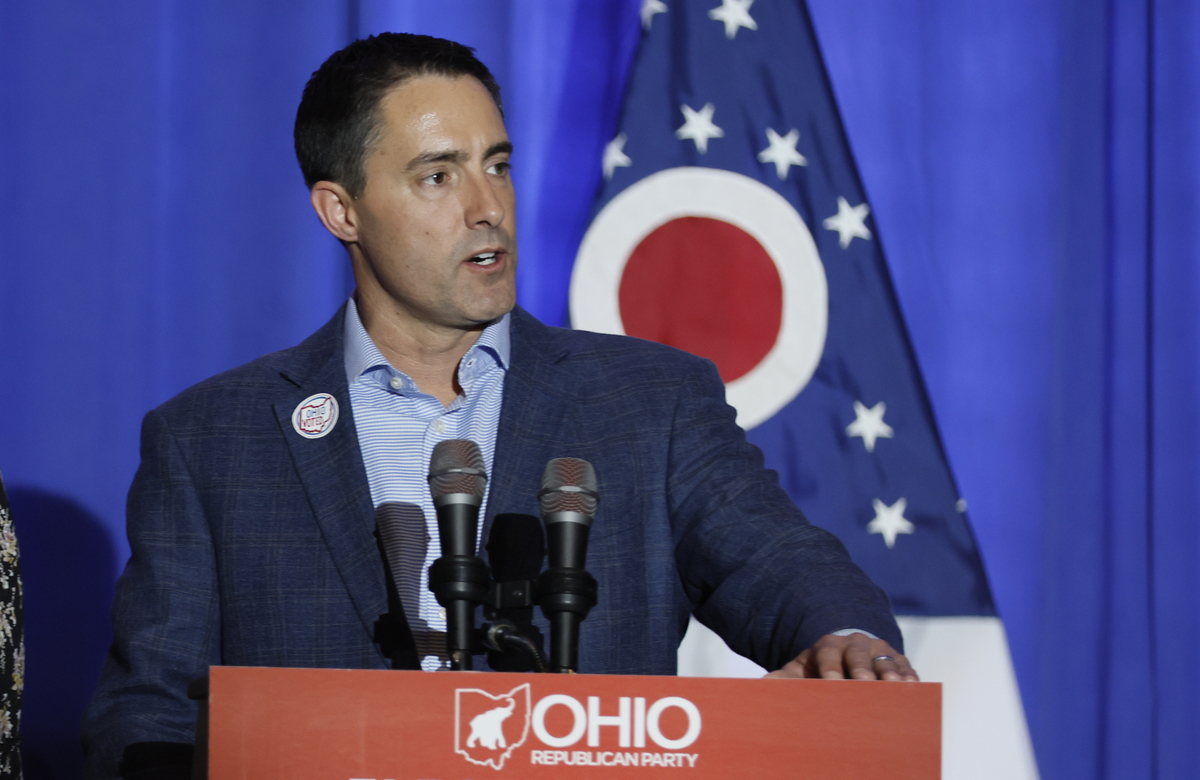ERIC loses another GOP state as Ohio departs voter compact : NPR

Ohio Secretary of State Frank LaRose, a Republican, speaks on election night November 8, 2022 in Columbus, Ohio.
Jay LaPrete/AP
Hide caption
toggle caption
Jay LaPrete/AP

Ohio Secretary of State Frank LaRose, a Republican, speaks on election night November 8, 2022 in Columbus, Ohio.
Jay LaPrete/AP
Ohio announced on Friday that it is the latest Republican-led state to back out of a key voting partnership that has become the focus of conspiracies on the far right.
Ohio Secretary of State Frank LaRose — a Republican widely believed to be seeking a run for the U.S. Senate in 2024 — sent a letter to the executive director of the Electronic Registration Information Center (ERIC), saying the Decision announced soon after bidding Compact member states held a meeting on Friday.
“ERIC has repeatedly chosen to ignore calls for reforms that would increase confidence in its performance, encourage growth in its membership, and ensure not only its current stability but also its durability,” LaRose wrote. “Rather, you have chosen to redouble bad strategic decisions that have only led to the transformation of a previously bipartisan organization into one that appears to favor only the interests of one political party.”


ERIC is a multi-state partnership that experts from across the political spectrum say is the only reliable and secure way for states to share voter data with each other. The coalition allows states to know when voters move or die so they can keep their voter lists more up to date.
Just last month, in an interview with NPR, LaRose called ERIC “one of the best tools we have for maintaining the accuracy of our voter files.”
But since last year, far-right media began targeting the organization, arguing that the Democrats were doing this to rig elections in their favor.
The bump continued, and Ohio and other Republican states began pushing for changes to the ERIC Membership Treaty and Bylaws to lessen the actions required of member states. A key wish was to no longer have to reach out to eligible but unregistered voters as required by the current ERIC documents.
In his Friday letter, LaRose reiterated his desire to “allow Member States to use ERIC’s data exchange services ‘a la carte’ in ways that they feel best serve their local interests”.
The ERIC Board, made up of representatives from all member states, met Friday to discuss changes LaRose and other Republicans have been calling for over the past few months. None of the proposed changes to how countries use ERIC data were adopted, although the Board voted to eliminate non-voting members from the organisation.
“The Mouse Never Goes Away”
This aspect of the negotiations has been tense in recent months as the organization weighed ties to electoral attorney and expert David Becker, who helped found ERIC when he worked at the Pew Charitable Trusts more than a decade ago, should essentially cancel.
Much of the conspiracy theories about ERIC have centered on Becker, who is generally well respected in the constituency despite efforts by the right to portray him as a partisan.
Finally, Becker announced Earlier in the week that he would not accept re-nomination to his current position as the sole non-voting board member, and the organization then voted on Friday to scrap those positions entirely.
“Any organization has to be really careful if they think you can respond to bullies and conspiracy theorists by capitulating to them,” Becker said in an interview with NPR last month. “Many elected officials thought they could just give the mouse a cookie and it will go away. The mouse never goes away.”
Six Republican states have now either withdrawn or announced their intention to withdraw — all since early 2022. None have elaborated on how they intend to keep their lists up to date without the wealth of data they have received from the bipartisan partnership .
“It’s actually hurting that state more than it is hurting us,” said Brad Raffensperger — the Republican secretary of state for Georgia, another state in ERIC — after Alabama announced it was going earlier this year. “They just indirectly said, ‘Oh, we’re going to have dirtier voter rolls over here.’ “